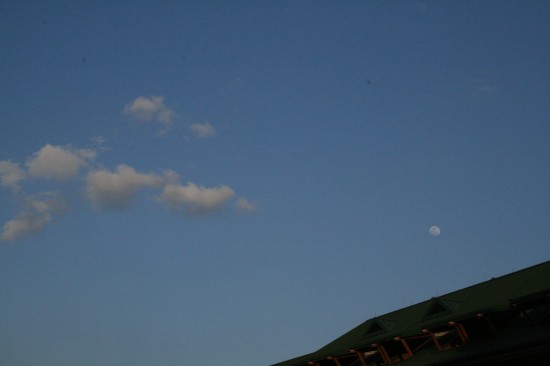When I ran cross-country, in high school, I’d invariably have so much energy at the end that I’d sprint the last half mile. Or do a cartwheel or two towards the finish line. My coach, understandably, was not enormously fond of this behavior, and urged me to run faster earlier on because I obviously could. I never did. I was scared that I would be too tired at the end.
In yoga, I often drop out of poses a few breaths before the teacher says to. I’m usually hurting by then, my body giving up the “alert! alert! alert!” flare, but I’m never at the point of actual failure. For example, I’ve never held a back bend for a full ten breaths. I have never not rested during some extra-long downward dogs. I have never stayed in warrior two for a long hold, totally still. It’s not exactly that I give up when things get hard. It’s a little more nuanced, and less impressive than that: I give up before they are really hard, in anticipation of not being able to do it.
The personality trait evinced by these examples has been on my mind lately. And it’s not a good one. It’s as though I’m preemptively worried about not having enough – energy, strength, speed. Even when the data suggests otherwise, I’m too afraid. What, though, am I actually afraid of? Am I scared of “success,” of running fast, of holding a pose longer than I thought I could? What would happen if I did?
And, I worry, in how many non-physical ways does this tendency manifest? I’m certain there are dozens of places – emotional, spiritual, intellectual – where I am similarly afraid to really go there. How to break through this mild, sometimes invisible withholding? What is it about?
I don’t have answers, but I have lots of questions, today centering around this aspect of myself that I am not proud of. I should just try holding the damned backbend for ten breaths. But for some reason that fills me with fear. Why?


